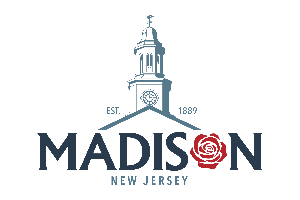
Borough of Madison Recycling Changes
The Borough of Madison announced important changes to our recycling program that began on January 1, 2020. Starting this year, only plastic containers (bottles and non-bottles) coded 1, 2 and 5 will be accepted for curbside recycling.
Residents are encouraged to look for the recycling symbol on the bottom of plastic containers before disposing of plastic.
Acceptable plastic bottle/containers include the following:
Containers that are coded #1 (PET/PETE, Poly-EthyleneTerephthalate) include water, soda and salad dressing bottles, microwavable food trays, and peanut butter containers;
Containers coded #2 (HDPE, High Density Polyethylene) include milk jugs, shampoo bottles, and butter and yogurt tubs;
Containers coded #5 (PP, Polypropylene) include ketchup and syrup bottles, and some yogurt containers.
These changes to the recycling program are due to restrictions imposed by China on their imported recycling commodities. Due to the restrictions put in place, Madison’s recycling program has been negatively impacted, thus resulting in certain plastic containers no longer being accepted as part of curbside recycling.
Madison’s contract for hauling and recycling was recently re-bid. Due to the restrictions, our hauler for recycling now had to make other arrangements for disposal and recycling of all goods. This has caused garbage and recycling costs for 2020 to go up approximately $322,500.00 for the year. Waste removal, which is the hauling of waste and recycling, cost $1,657,300.00 in 2019. In 2020, that cost has increased by 19.46% to $1,979,800.00 due to the restrictions and lack of facilities within the area accepting recyclables.
Those plastic bottles/containers that are now unacceptable include:
Plastics with no container code (no number in a recycling symbol);
Plastics coded #3 (V, PVC Vinyl), which include cooking oil and mouthwash bottles, clear food packaging, and PVC piping;
Plastics coded #4 (LDPE, Low Density Polyethylene) used in plastic shopping bags and trash bags;
Plastics coded #6 (PS Polystyrene) used in disposable cups, plates, egg cartons, and clamshell take-out containers;
Plastics coded #7 (Other) used in three-to-five gallon water jugs and some food containers.
Recycling materials that will be collected, including plastic bottles and containers coded 1, 2 and 5, include aluminum cans, glass bottles and jars, steel (tin) cans, newspaper, corrugated cardboard, mixed paper, and organics, including leaves, grass clippings, brush, logs, stumps, branches and tree parts.
Residents are reminded to ensure that recyclables are empty and clean before placing them to the curb. Plastic bags are not to be used for curbside recycling as they can be caught in the machinery at the recycling center and cause delays, contamination and increased processing costs. Clean, dry plastic bags should be recycled at local supermarkets. Contaminated materials could result in the entirety of the truck being denied at the recycling center, and cause all of its contents to be brought to a landfill instead.
For additional information, including your recycling/garbage/yard waste collection schedule, and a simple ‘What Goes Where?’ feature, download the free Recycle Coach App through the App Store or Google Play.
